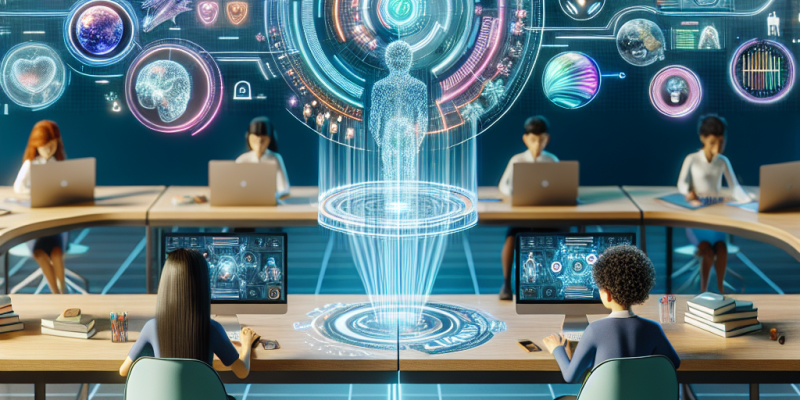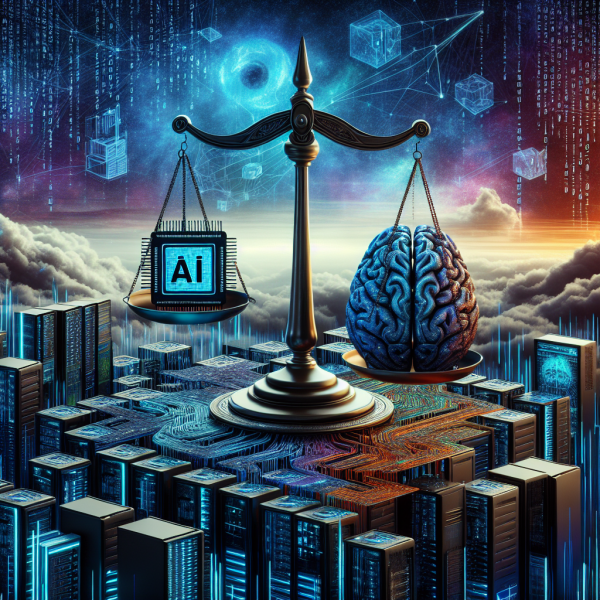The Future of AI-Driven Education: Personalized Learning Journeys in 2024

The Future of AI-Driven Education: Personalized Learning Journeys in 2024
As we advance into 2024, the educational landscape is changing at an unprecedented pace, largely driven by advancements in artificial intelligence (AI). Gone are the days of one-size-fits-all curriculum; the education system is embracing a paradigm shift toward personalized learning journeys that cater to the individual needs, strengths, and interests of each student. This transformation represents not just a technological upgrade but a fundamental rethinking of how we educate future generations.
The Rise of Personalized Learning
Personalized learning, wherein education is tailored to the learner’s unique pace and style, has been touted as the future of education for some time. In 2024, the integration of AI technologies is making this approach more viable and effective than ever. AI systems are being developed that analyze data from a myriad of sources, including student performance metrics, engagement levels, and even emotional responses, to create a customized learning experience.
For example, algorithms can detect when a student struggles with a concept and subsequently adjust the difficulty level of tasks or offer supplemental resources in the form of videos, simulations, or interactive lessons. This adaptability ensures that no student is left behind, allowing them to grasp foundational concepts before moving on to more complex topics.
Bridging Learning Gaps
One of the most significant advantages of AI-driven education is its ability to identify and bridge learning gaps. Advanced analytics can provide educators with deep insights into student performance, revealing patterns that might not be visible through traditional assessments. This data allows teachers to intervene early when students are struggling and provide targeted support.
Furthermore, AI tutors can assist students outside of the classroom, providing on-demand help within a context that they understand best. These AI companions can tirelessly operate 24/7, answering questions, providing practice exercises, and enhancing understanding through interactive platforms. This continuous support makes learning a fluid, accessible, and engaging process that extends beyond school hours.
Enhancing Teacher Effectiveness
AI in education doesn’t seek to replace teachers; rather, it aims to augment their capabilities. By automating administrative tasks such as grading and data collection, educators can devote more time to what they do best: teaching and inspiring students. The AI tools can analyze class performance data to recommend personalized strategies for individual student success, enabling teachers to focus on relationship-building and mentorship.
Additionally, professional development for educators is also being revolutionized. AI can assess teaching methods and effectiveness, providing customized feedback and resources tailored to professional growth. This fosters a culture of continuous learning among educators themselves, ensuring that the teaching workforce remains dynamic and adaptable in an ever-evolving educational landscape.
Empowering Student Agency
AI-driven education also encourages a more empowered approach to learning. As students engage with personalized learning platforms, they gain greater autonomy and agency over their educational journey. They can set individual goals, choose learning pathways that resonate with their interests, and track their progress against these objectives.
Moreover, the gamification of learning—where AI infuses educational content with game-like elements—enhances engagement and motivation. Students become active participants in their education, unlocking achievements and earning rewards as they conquer challenges at their own pace.
Equity in Education
One of the most compelling promises of personalized, AI-driven education is its potential to promote equity. By providing tailored resources and support to all learners, regardless of background or ability, AI can help to level the playing field. This is particularly vital in under-resourced areas where educational inequality is prevalent. AI can be harnessed to bring quality education to rural or underserved communities, breaking down barriers and providing opportunities for all.
However, ensuring access to AI technologies remains a challenge. Policymakers and educational institutions must address the digital divide to guarantee that all students benefit from these innovations. Collaborations between tech companies, governments, and educational organizations are essential to create initiatives that provide necessary resources and training for both educators and learners.
The Road Ahead
As we look toward the future of AI-driven education in 2024 and beyond, it is clear that the shift toward personalized learning journeys is not merely a trend but a necessary evolution in how we think about education. Embracing personalized learning powered by AI holds the promise of adapting to the complexities of modern society, where diverse talents, skills, and learning styles flourish.
The road ahead will not be without its challenges, including ethical considerations around data privacy and the need for robust infrastructure to support AI initiatives. However, with a commitment to equity, collaboration, and innovation, the future of education can be one that truly meets the needs of every learner, fostering a generation equipped to thrive in an increasingly complex world.
Conclusion
In 2024, personalized learning supported by AI is poised to transform education into a more responsive and inclusive system. By harnessing technology to understand each learner’s unique journey, we can cultivate a thriving, adaptable educational ecosystem that empowers students, enhances teaching effectiveness, and bridges gaps in learning. The future of education is bright, and it promises to be as diverse and unique as the students themselves.














